There are few things more predictable than people talking about the unpredictability of politics. We live in an age, we are told incessantly, in which anything can happen politically — and regularly does. Yet there is one exception. Westminster is already sure about the result of the next general election: a majority for Theresa May. One long-serving Tory MP tells me the party has never been more certain of victory in his lifetime.
The Tories, with their 15-point poll lead, do look far better placed today than they did, say, 18 months before either of the Thatcher landslides, in 1983 and 1987. It isn’t just the Tory tribe who are convinced they’ll win, either. Labour MPs are looking for jobs now to beat the rush that they suspect will follow the next election.
What’s the explanation for this paradox? Well, it used to be Jeremy Corbyn. The view was that he was unelectable and that the more the British public found out about him, the more unelectable the party he led would become. There was a lot of truth in this. But even if Corbyn were to go in the coming months, that wouldn’t change people’s assumptions about the result.
Corbyn is no longer Labour’s biggest problem. The biggest problem is how to reconcile the two sides of the Labour coalition — what one might crudely call metropolitan Labour and Northern Labour. Metropolitan Labour is staunchly pro-EU, and deeply disappointed with Jeremy Corbyn for whipping his MPs to vote for Article 50. Northern Labour saw its constituencies vote for Brexit, worries about the Ukip threat and doesn’t want to look like it is trying to obstruct the referendum result. It is hard to see how these two positions could be reconciled even by a new, and more politically adept, leader.
But if Labour is too weak to succeed, then it is also too strong to fail. David Miliband has told visitors in New York that, although Labour can’t win a general election, it is too big to be dislodged as the opposition party. In other words, it is a political bed-blocker: a party in chronic decline that can still stop anything from taking its place. Combine this with our first-past-the-post electoral system and a Tory victory in 2020 is close to a racing certainty.
Such certainty has both good and bad effects. Those involved in drawing up this week’s Housing white paper say both No. 10 and ministers are now more prepared to countenance building on some of the green belt, a necessary step to alleviate the housing crisis. Previously, it would have been thought that because of the lag between the announcement and any houses getting built, you would get the pain but not the gain from the policy by the time of the general election. Now, though, Tories are confident that they’ll reap the political rewards of this before the next tight general election campaign in seven or eight years’ time.
But there is a danger that certainty breeds complacency — something the Tory party is always prone to — and sloppiness. Several Conservative backbenchers suggest that the botched proposals on school funding were an example of complacency creeping in. Someone should have spotted, they say, that there were too many losers and not enough winners.
This danger is compounded by the fact that Brexit will inevitably take up most of No. 10’s energies. The amount of foreign travel involved in both Brexit and its necessary complement, the promotion of ‘global Britain’, will leave limited time for domestic matters. On both sides of the Tory divide, there is concern about this. One of those central to Cameron’s modernising project recently complained to me that the May team had forgotten that the public care more about the NHS than the EU. He warned that the focus on Brexit meant they weren’t paying enough attention to the Tories’ traditional weak spot. Having said that, No. 10’s irritation with the BBC for its week focusing on the NHS suggests they are aware of the problems that the health service could pose them.
Meanwhile, Tory grammar-school backers are increasingly concerned that there hasn’t yet been a white paper on the subject. The consultation closed in mid-December, they note, and yet there is no date for the next stage of the process. There are grumblings that the Education Secretary, Justine Greening — who, unlike May and her team, is not an enthusiast for the policy — is deliberately slowing things down.
This focus on Brexit, though, is inevitable. Nothing else the May government does will be as important as this. Once Article 50 has been invoked, the negotiations themselves can begin. One key point of contention is that the EU wants to settle the so-called divorce bill before any talks on a trade deal. The UK, meanwhile, wants the processes to run in parallel. I am told that David Davis is particularly determined that the government be ‘robust’ on this point. Some in Whitehall even think that HMG should walk away from the negotiations, at least until after the German elections, if the EU will not concede it. The reason is that money is one of the UK’s strengths in these discussions; our departure puts a large hole in the EU’s budget. To agree to the divorce bill before the future relationship between the UK and the EU is sorted out would weaken our negotiating position.
The prospects of a sensible Brexit deal now seem far higher than they did on the morning of 24 June. Even Wolfgang Schäuble, the German finance minister, who normally likes to play the hard man in EU negotiations, says that on financial services ‘we have to find reasonable rules here with Britain’, because nowhere on the continent offers what the City does. But the slew of European elections coming up could change the dynamics of the negotiations. Geert Wilders winning in Holland could lead the EU to circle the wagons. Martin Schulz defeating Angela Merkel could result in Germany taking a far more ideological approach. But the one thing that doesn’t look like changing is the probable result of the next British general election.
Got something to add? Join the discussion and comment below.
Get 10 issues for just $10
Subscribe to The Spectator Australia today for the next 10 magazine issues, plus full online access, for just $10.
You might disagree with half of it, but you’ll enjoy reading all of it. Try your first month for free, then just $2 a week for the remainder of your first year.


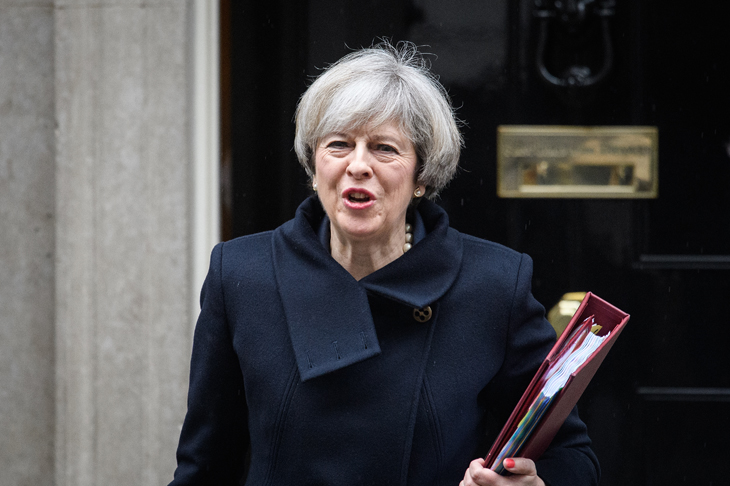
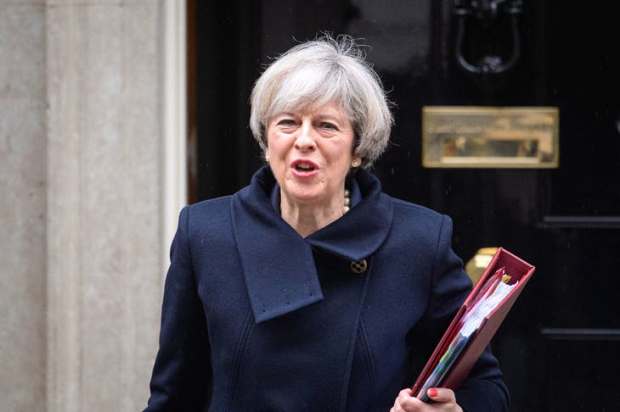

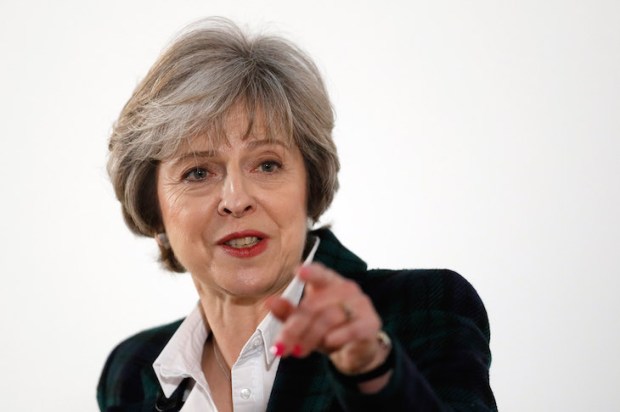
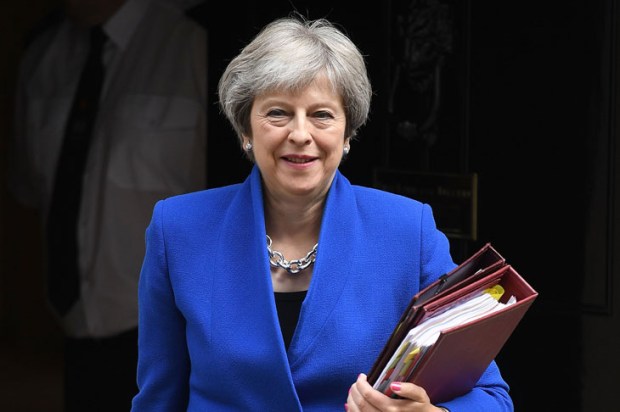
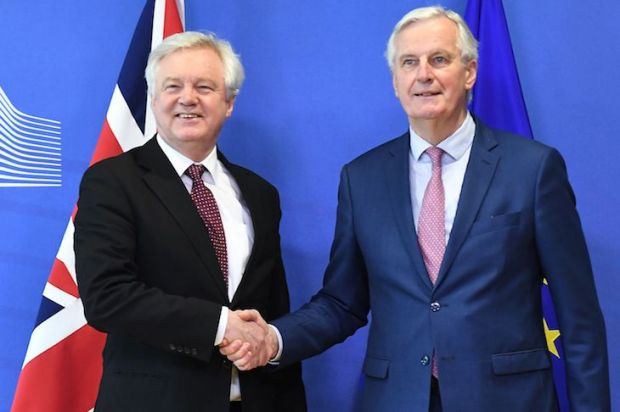
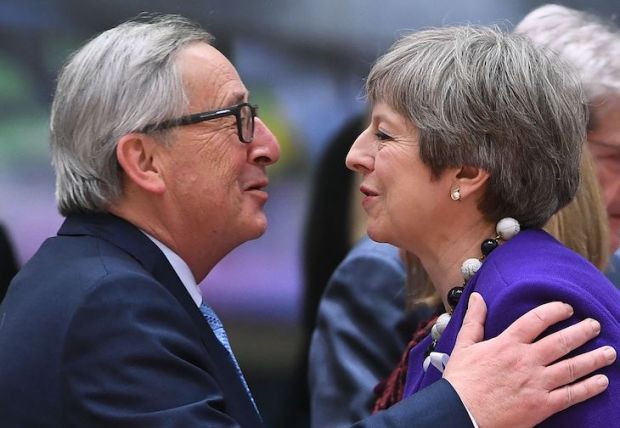






Comments
Don't miss out
Join the conversation with other Spectator Australia readers. Subscribe to leave a comment.
SUBSCRIBEAlready a subscriber? Log in